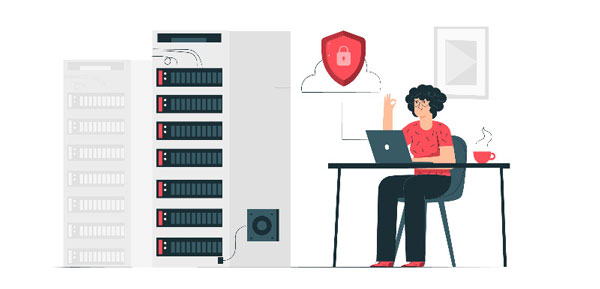
8 Things you wish you knew before signing up for a web hosting
In today’s fast-evolving digital era, websites are indispensable for the success of any business. It is the most effective way to communicate with your target audience, spread the word, and disseminate innovative brand ideas & values. The performance of a website depends, to a large extent, on the web host you choose. A well-designed website will fail to attract traffic or boost sales if there isn’t a good hosting provider to keep the site up and running.
The digital marketplace is highly competitive, with millions of websites prying for customers’ attention. In this scenario, it is crucial to ensure your website is up and running all the time. A good web hosting company minimizes downtime and ensures the website is accessible at any time – thus, generating a steady traffic flow and better conversions. To put it simply, web hosting is an integral element of building a strong online experience.
It can be a difficult task to sign up with the right hosting company. This article guides you with all the steps for making your task easier.
Hosting types

To begin with, it is crucial to understand the different types of web. Do not rush this process as not choosing the right type of web hosting can significantly affect the performance of your website.
Here are some prominent types of web hosting you should know about:
Shared hosting
It is the most basic form of web hosting and the right option for entry-level or small websites. Here, multiple websites share resources on a single server. Hence, each website hosted on the server will have access to limited resources as per their hosting plan. Since resources are shared among multiple websites, it reduces the cost of owning or managing a private server.
Hence, shared hosting is also the most cost-effective type of web hosting. But there are also some drawbacks of shared hosting. If one website hosted on the server experiences a spike in traffic, it will likely affect the performance of other websites on the same server. So, it is ideal for smaller websites that do not have high traffic footfall and also want to save some money.
It is the cheapest type of web hosting that ranges between $2.49 and $15 per month depending on the hosting provider you choose. However, many shared web hosting providers will require you to sign up for 24-months or 36-months plans if you want to enjoy discounted monthly prices.
VPS hosting
Known as “Virtual Private Server,” this type of hosting is most suitable when your website starts growing and a shared plan won’t fulfill your needs. In VPS hosting, you’ll still be sharing a single server with multiple other websites. But in this scenario, the number of sites sharing the server resources is significantly lower than shared hosting.
The main server is segmented into several multiple servers and can be customized to meet the unique needs of individual websites. Since now you have access to more resources and the number of websites sharing the server is less, you can benefit from higher uptime rates and faster loading times. If your website isn’t big enough to need a dedicated server, you can get some of its benefits at a fraction of the cost with VPS hosting.
VPS hosting price ranges from $17.99 to $84.99 per month. But just like shared hosting, discounted pricing is available for a minimum 6-month subscription.
Dedicated hosting
Dedicated hosting is the most suitable option for enterprise-level websites that experience more than 100,000 monthly visits. One of the biggest advantages of this type of hosting is that you have complete control over the server. It belongs only to you, and you are not sharing resources with other websites. Hence, you can enjoy the benefits of significantly high uptime and faster loading times.
Large enterprises and eCommerce sites consider a dedicated hosting plan because they can easily customize server settings, including configurations, software, etc. Additionally, they experience heavy footfall every day and hence, would require hosting that supports lightning-fast page loading speeds and zero downtime.
However, dedicated hosting is also the most expensive type of web hosting, with prices ranging between $119 to $149 per month.
Cloud hosting
Cloud hosting is a hybrid version of a Virtual Private Server, but is more cost-effective. It comprises multiple remote servers, each having higher uptime rates and faster loading speeds. You will not have unexpected downtime and the website will perform at its optimum level.
The best thing about cloud web hosting is its scalability. You can use the server resources and scale up or down depending on your changing business requirements. This means you’d pay only for what you use. Websites having more than 50,000 monthly page visits should consider a cloud hosting plan. Cloud hosting plans are cheap, with prices starting at just $5 per month.
The choice of web hosting will depend on the type of website you have, monthly page visits, budget, and your changing business needs.
Refund policy

When you sign up for long-term web hosting plans, a lot of costs are involved. Hence, you’d expect the best value for your money. Therefore, check the refund policy of the web hosting company before you subscribe.
Many good hosting providers ensure a refund within 30 days of signing up. You should also check the products that are available for refund. There are many websites hosting companies that offer a refund only on the hosting plan pricing; add-ons are often not included. Again, there are hosting providers that do not provide refunds after a certain time when the hosting service has been active. Therefore, it is crucial to read and understand the refund policy carefully.
Technical support

This is one of the most important factors to consider – does the hosting company offer reliable and prompt technical support round-the-clock? Website downtimes or technical glitches can happen anytime, unexpectedly. Make sure the hosting provider is available at all times to cater to your needs and resolve the issue at the earliest.
Another crucial factor to keep in mind is how experienced the support staff and system administrators are. After all, when you call for technical support, having stuck for minutes with a non-technical customer service representative can be frustrating. You’d need an experienced system administrator to talk to. Hence, you should be aware of the structure of their technical support team.
Do they have a dedicated account manager to cater to your needs? What is their average wait time to reach the right systems administrator to resolve your problems? How quickly and efficiently they can address your technical glitches or downtime? Getting answers to these questions is important if you are looking for prompt and reliable technical support.
FREE site migration

Finding the right website hosting platform is important. But often, it may not live up to your expectations or you simply want to upgrade to a better option. If you are planning to migrate from your current hosting provider to a new platform, make sure that the hosting company offers free website migration. Additionally, the process should be well-managed, effortless, and simple. This will ensure a seamless migration experience.
Typically, many good web hosting providers offer free migration, and you can switch from your existing host to the new one at no additional cost. All you need to pay is the subscription cost. Talk to customer care about the migration process. A hassle-free process will enable you to get back to your business, while your website is in safe hands.
“Unlimited” marketing scheme

Often, web hosting companies will tempt you with attractive marketing schemes like “unlimited monthly data transfers” or “unlimited storage.” But before you fall for the offer, make sure it is an honest and transparent deal because “unlimited” isn’t always truly unlimited.
However, that does not mean that the hosting providers are lying outright. Their unlimited data transfers and storage offer will be in good standing until you are within limits. You should not expect streaming or uploading 50TB of data per day and yet have the website running smoothly.
So, consult the support team to know precisely what the scope of their unlimited offering is. It is better to opt for a web hosting plan that provides the right amount of resources for your website. So make sure you know in advance the exact email hosting limits, monthly traffic limits, and storage limits for each hosting plan before you commit with any web hosting provider.
Uptime guarantee

When you think from the website visitor’s point of view, it can be very frustrating when you click on a link, but the website does not open. And this problem isn’t just annoying for the users but for search engines as well. A broken link or a website that does not open or take several minutes to load can significantly affect your user experience and it can also affect your organic search engine rankings.
Therefore, it is important to ensure that the website hosting company offers high uptime. It is an indicator of a website’s availability on the Internet and is represented in percentages. The higher the uptime, the better the website availability guarantees you have. When finding a suitable website hosting provider, an uptime guarantee is an important factor to keep in mind. Choose one that offers an uptime of more than 99%.
But do not fall for an uptime guarantee blindly. Ask the technical team what is the deviation rate here. Check reviews to know if the web host delivers a high uptime as it promises. In this regard, it is always better to go for bigger names in the industry to have peace of mind that they will live up to your expectations.
Great discounts for their plans

When finding a good web hosting provider, you will come across many companies offering huge discounts on their hosting plan pricing. This is a marketing scheme to attract more subscribers. But there is a catch. In most cases, you can enjoy the discounted price when you sign up for their long-term plans – 24 months or 36 months. If you sign up for their monthly plan, you will ideally not get the discounted price.
However, you also cannot overlook the benefit of subscribing to a 2-year or 3-year plan. The price discounts are relatively higher than what you’d get for a monthly plan. And this can be worthwhile when you are just starting with building a website or have a small website. But at the same time, it is important to check their renewal prices. Do the plans renew at the same discounted price or you’d need to pay the cost of subscribing to a monthly plan?
In many cases, the renewal costs are higher than the price at which you’d initially sign up. So, this is an important cost factor to keep in mind when considering a web hosting company.
How much should I spend on personal website hosting?

Personal websites are typically less complex than business websites, and also experience fewer monthly average visitors. Depending on the size and type of personal website you have, you need to determine the type of web hosting plan you need. Ideally, a shared hosting plan is most suitable because you get access to the resources you need while not having to break the bank. A basic shared web hosting plan would cost around $2.49 and $15 per month or even less – perfect to host personal websites.
The amount that you should spend on hosting a personal website will depend on the type of website you have, the number of visitors expected, and your needs.
Conclusion
These are some of the most important things you should know before signing up for a website hosting company. Do not fall for attractive discount offers, service guarantees, or promotions right away. Always check the reputation and experience of the company before you subscribe. Most importantly, read the company’s reviews to ensure it delivers what it promises.
It is recommended to compare different hosting providers and their plans thoroughly to choose one that best fits your business needs and budget. At the same time, it is crucial to keep the scalability factor in mind because your website will grow over time and you’d need a hosting provider that meets your changing requirements.
All images from Freepik – sourced by the guest author of this post, Marouane El Hadi.